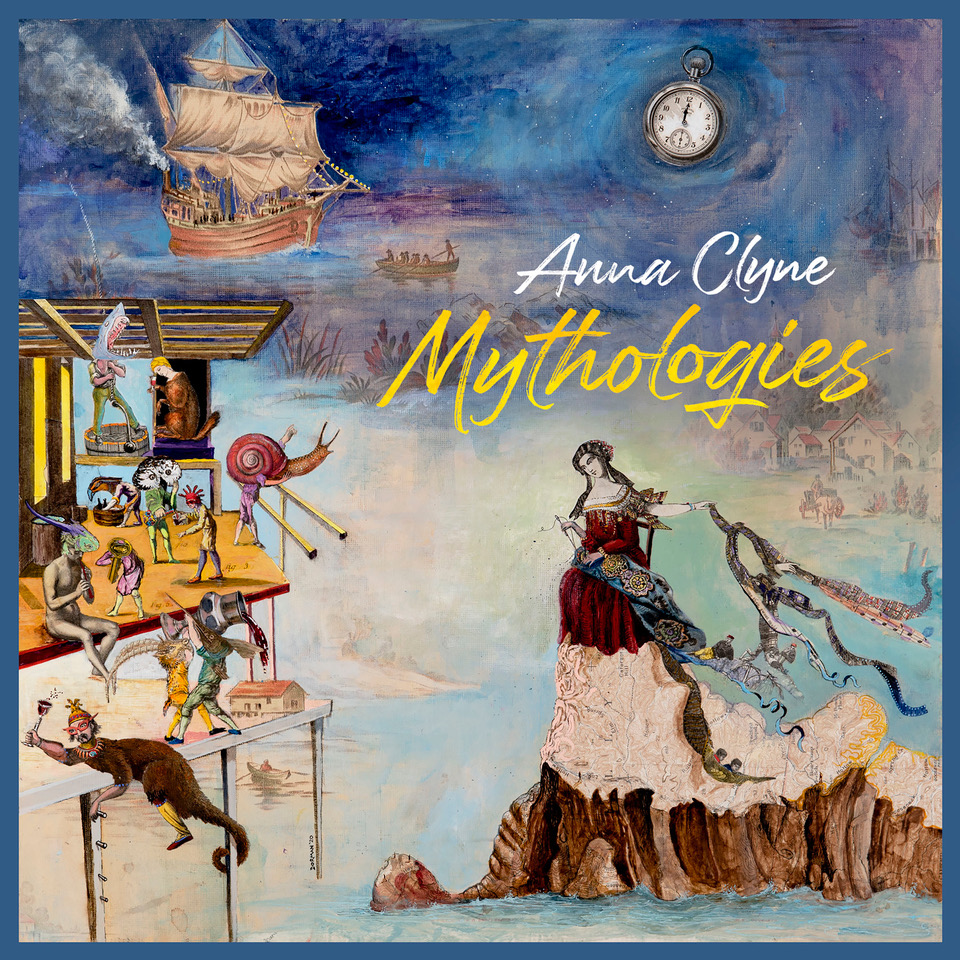by Jarrett Hoffman

Released in October on Avie Records, Mythologies includes five works brought to life brilliantly by the BBC Symphony Orchestra in live performances recorded over the past decade. Their music-making, and that of the four different conductors who lead them, is top-notch: full of energy and commitment, remarkably polished, and compellingly shaped.
The playlist begins with the five-minute Masquerade, a perfectly bite-sized introduction to this composer’s music, heard here in its world premiere recording. Marin Alsop wraps all of Clyne’s alluring gestures into one fantastic sweep, not unlike magic, which of course also happens with a short stick and a wave of the arm.
Clyne trades in some of the smooth, chromatic runs and soaring high notes from that work for intense articulations and a fascination with the depths of the orchestra in This Midnight Hour. It also shows her all-important instincts of rhetoric. She knows just how to use stasis — or better yet, silence — to break up the flow of energy. BBCSO chief conductor Sakari Oramo is right on the same page, stretching out those long notes and long gaps in sound like he’s daring you to blink.
Oramo remains on the podium for The Seamstress, a violin concerto that shows Clyne’s versatility, ambition, and skill rising to yet another level. The violin part is wide-ranging, its folk-like melodies leading to visceral passages of atonality, long chains of notes spiced with accents, and deeply felt lyricism.
All of that comes together in a tour-de-force performance by soloist Jennifer Koh, who draws you in with her rich tone, undeniable expressivity, and total ownership of this piece — a combination of her technique, her pacing, and the sense she gives you that this music pours out genuinely from her own being.
On top of the musical diversity already present in the violin part, Clyne uses a pre-recorded tape to incorporate voice (that of Irish composer Irene Buckley) and poetry (William Butler Yeats), creating a multimedia work that’s impressively organic and totally unique.
What makes it work so well is that Buckley’s voice often takes the form of another instrument in the orchestra. First, her role consists of soft hisses and breathy whooshes of air, entering fittingly by joining the flutes. Then she grows to a whisper, with bits of Yeats’ A Coat coming through, barely intelligible. Near the end, we finally hear the poem clearly in Buckley’s gentle, understated tone as the piece hits its climax. Only here, and briefly, does the text take the spotlight from the music, and it feels deserved, the natural completion of a satisfying arc.
Cohesive, varied, inevitable, and full of surprises, those first three works will knock you out. And while the final two, Night Ferry and <<rewind<<, don’t quite reach the same lofty heights, sporting less variation in mood, gesture, and color, it’s interesting to hear them knowing that they’re in fact Clyne’s earliest pieces on the album. In particular with <<rewind<<, her Manhattan School of Music thesis, it’s easy to hear nuggets of magic that clearly boded well for the future — now her present, and ours.
Published on ClevelandClassical.com December 15, 2020.
Click here for a printable copy of this article


